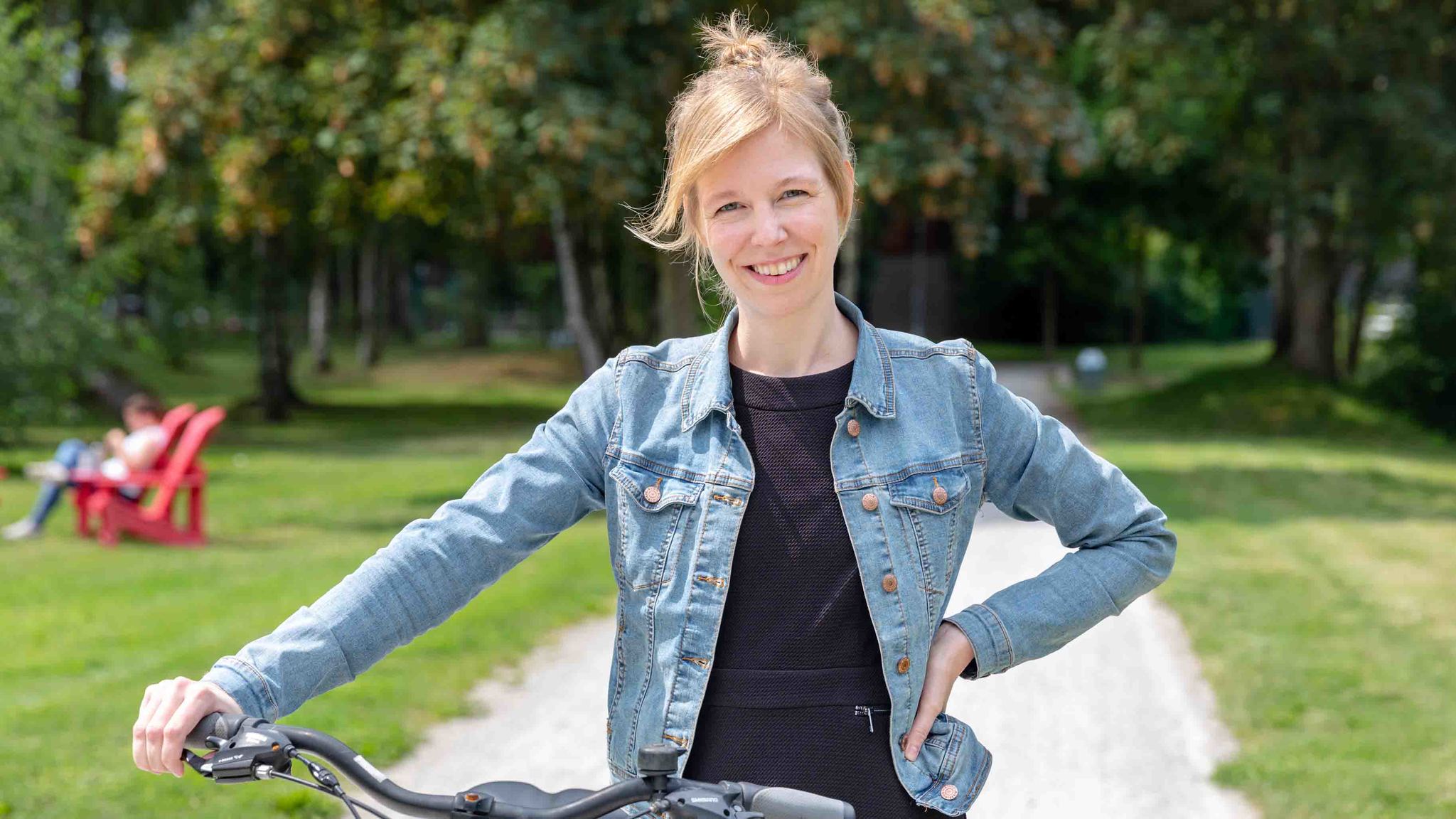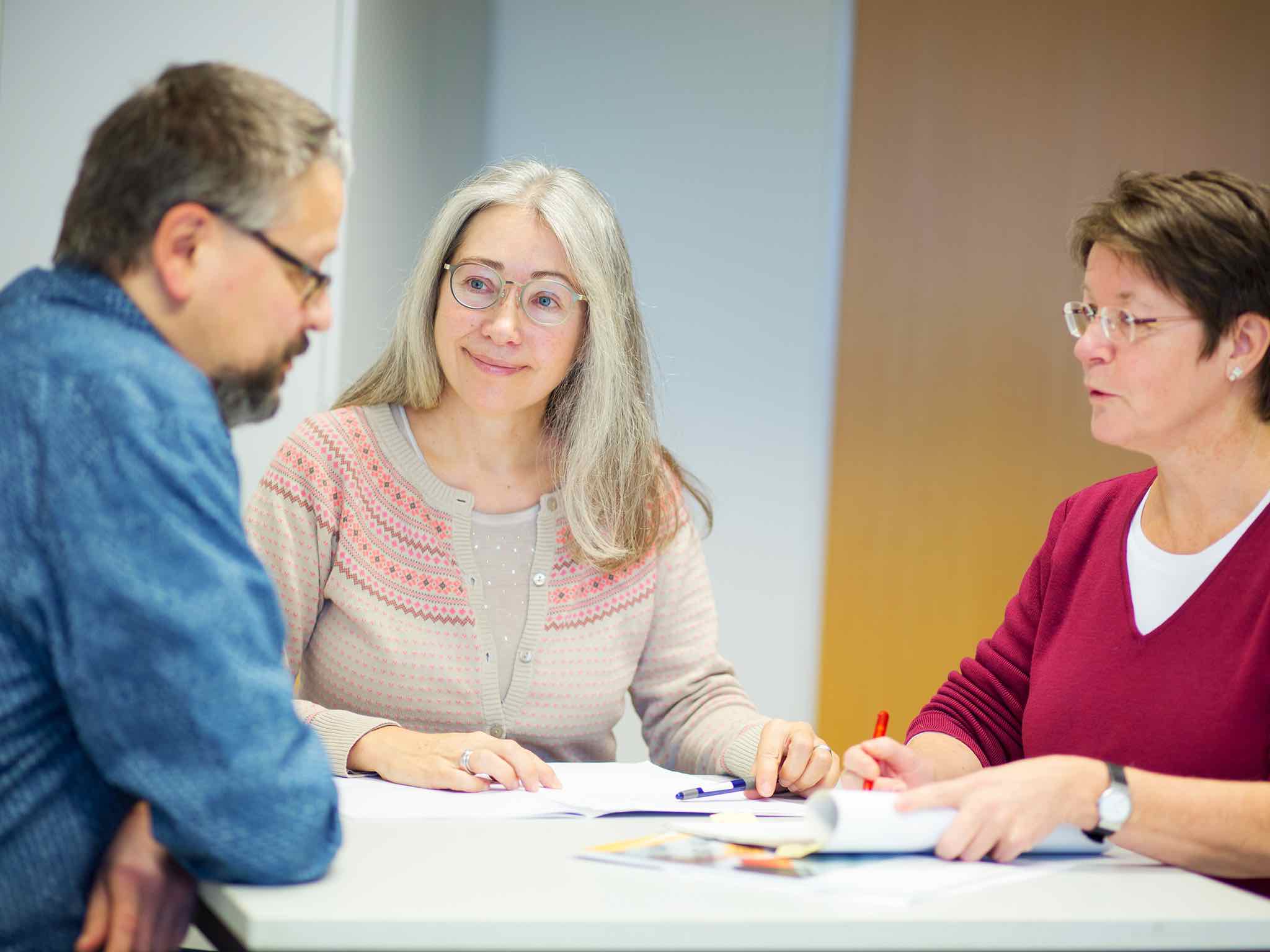
“Social Factors Are of Major Importance”
The new health manager of the University of Bremen discusses what we need for a healthy workplace
Alexandra Baumkötter has been the health manager of the University of Bremen since the start of 2019. Her work includes analyzing working conditions and developing health measures. In this interview, she discusses what a healthy workplace is and how the university and its employees can contribute to this.
Ms. Baumkötter, what do we need for a healthy workplace?
Firstly, you have to say that work, in general, is a protective factor: people who do not work are ill more often and have poorer health than people who work. Working conditions, on the other hand, can have a negative or positive effect on our health and a healthy workplace, therefore, involves several factors. It depends on how these are put into practice.
What aspects are important here?
On the one hand, there are the general workplace conditions: What is the room like? Is there too much noise, is it too hot or similar? Is the workplace well-equipped? Can I, for example, sit comfortably at my desk? A further key point is the work organization. What are the time-related requirements of the work like? Am I able to organize my work? Will someone stand-in for me if I am ill? Do I receive all the information I need? Am I able to understand the decisions of management and are these transparent? Mental health also places a significant role: Do I feel sufficiently qualified for my work? Do I understand my work, is it meaningful for me? Social factors are also of major importance: What is the work atmosphere with my boss like? What is this like in the team? Is my work appreciated? And what is the cooperation culture like?
What has the greatest effect?
All factors should always be viewed as being connected. Social factors, however, are of considerable significance and research has shown this. Especially the cooperation with our colleagues as well as the social support represent an important factor in our health. If things are going well in this respect, employees feel good and at ease and are able to work well. The same is true for the negative aspects – if there are conflicts in the team or with supervisors this can quickly lead to employees becoming ill and not being able to work for longer periods. How the work is organized also has a major influence on employee wellbeing. There are, therefore, many starting points for creating a workplace which is conducive to health.

How does your department help employees feel comfortable in their workplace at the university?
A key element of our work in occupational health management focuses on involving employees in the organization and structure of their general working conditions. In 2018, the university conducted an employee survey. The findings of this will be analyzed in terms of individual areas within workshops in the coming years in order to enable us to develop, together with the employees, customized health measures at the university. There are always two starting points for this task: One of them is that we need to establish offers for a healthy lifestyle. However, a greater challenge lies in organizing the structures at the university and in the individual areas so that they are conducive to health. The findings of the survey highlight the areas where action is needed and these include, for example, an appreciation of work and the time-related demands of the work. We want to specify the topics in the workshops and find solutions together with the colleagues.
“The ‘Active Break’ which we have developed offers compensation for the many hours spent sitting down.”
What can be proactively done for a healthy workplace?
You can codetermine the social factors, for example, by being respectful and cooperative with one another. You are also able to actively do something for your own health. The University of Bremen has many offers and options for its 3,500 employees.
What for example?
Several employees, for example, find it difficult that they spend so many hours sitting down and, as compensation for this, we have developed the “Active Break”. Work teams meet twice a week for 15 minutes to carry out exercises, stretching and to clear their heads. We train one person in each group to instruct the others.
Are there other health offers?
Many employees suffer from tension. We recently acquired mobile massage devices, which can be hired from administration and the faculties free-of-charge. Other areas in the university also offer employees various opportunities: For example, the University Sport Association on the campus offers a varied sports and exercise program. Some employees do yoga here. Occupational Safety offers free ergonomic advice and Personnel Development offers further training on health-related topics. And, for anyone who wants a little peace and quiet at work, there is also the Room of Silence in building GW2.
“Managerial employees are role models as well as a group which is under particular pressure.”
What role do managerial employees play in health management?
They have a key role as they are role models. Employees look at their supervisors to see what they do for their health and use this as an example. Managerial employees also considerably determine the working conditions and are, at the same time, a group which is under considerable pressure. This is because they are in a “sandwich position” as they are confronted with the demands of both their seniors as well as their employees on a daily basis. Management therefore requires a special program which the university offers and also intends to expand. Information on this is available on our website.

Profile
Alexandra Baumkötter has several years’ experience as a health manager in the university sector. Prior to joining the University of Bremen, the 34-year-old spent seven years working in occupational health management at the University of Oldenburg. Between 2012 and 2016 she helped establish health management and occupational integration management at the Jade University of Applied Sciences. Alexandra Baumkötter was already familiar with the University of Bremen from her days as a student: she did her bachelor’s and master’s studies in health sciences here between 2005 and 2011. She now works in the Occupational Health Management (BGM) department.